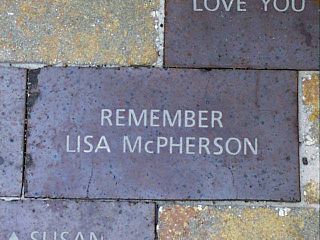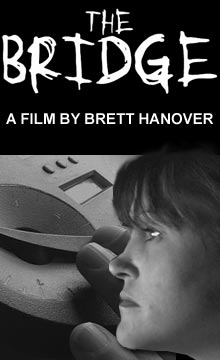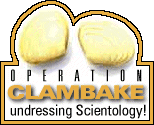An Internet filter is software that restricts or controls the content an Internet user is capable to access, especially when utilized to restrict material delivered over the Internet via the Web, Email, or other means. Such restrictions can be applied at various levels: a government can attempt to apply them nationwide, or they can, for example, be applied by an Internet service provider to its clients, by an employer to its personnel, by a school to its students, by a library to its visitors, by a parent to a child's computer, or by an individual user to their own computers. The motive is often to prevent access to content which the computer's owner(s) or other authorities may consider objectionable. When imposed without the consent of the user, content control can be characterised as a form of internet censorship. Some filter software includes time control functions that empowers parents to set the amount of time that child may spend accessing the Internet or playing games or other computer activities.

Xenu, also called Xemu, is a figure in the Church of Scientology's secret "Advanced Technology", a sacred and esoteric teaching. According to the "Technology", Xenu was the extraterrestrial ruler of a "Galactic Confederacy" who brought billions of his people to Earth in DC-8-like spacecraft 75 million years ago, stacked them around volcanoes, and killed them with hydrogen bombs. Official Scientology scriptures hold that the thetans of these aliens adhere to humans, causing spiritual harm.

There are a number of disputes concerning the Church of Scientology's attempts to suppress material critical of Scientology and the organization on the Internet, utilizing various methods – primarily lawsuits and legal threats, as well as front organizations. In late 1994, the organization began using various legal tactics to stop distribution of unpublished documents written by L. Ron Hubbard. The organization has often been accused of barratry through the filing of SLAPP suits. The organization's response is that its litigious nature is solely to protect its copyrighted works and the unpublished status of certain documents.
alt.religion.scientology was a Usenet newsgroup started in 1991 to discuss the controversial beliefs of Scientology and the activities of the Church of Scientology. The newsgroup became the focal point of an aggressive campaign known as Scientology versus the Internet, which took place online and in the courts.

The Fishman Affidavit is a set of court documents submitted by self-professed ex-Scientologist Steven Fishman in 1993 in the federal case, Church of Scientology International v. Fishman and Geertz (Case No. CV 91-6426.
Lumen, formerly Chilling Effects, is an American collaborative archive created by Wendy Seltzer and operated by the Berkman Klein Center for Internet & Society at Harvard University. It allows recipients of cease-and-desist notices to submit them to the site and receive information about their legal rights and responsibilities.

A body thetan or BT is a concept in Scientology of a disembodied thetan (being) that is stuck in, on, or near a human body. All human bodies are said to be infested by these disembodied thetans, or clusters of them.
Revolt in the Stars is a science fiction film screenplay written by Scientology founder L. Ron Hubbard in 1977. It tells the space opera story of how an evil galactic dictator, named Xenu, massacres many of his subjects by transporting them to Earth and killing them with atomic bombs. L. Ron Hubbard had already presented this story to his followers, as a true account of events that happened 75 million years ago, in a secret level of Scientology scripture called Operating Thetan, Level III. The screenplay was promoted around Hollywood circles in 1979, but attempts at fundraising and obtaining financing fell through, and the film was never made. Unofficial copies circulate on the internet.
Steven Fishman is an American former Scientologist whose inclusion of Scientology's secret Operating Thetan levels in a court filing led to the first public confirmation by the Church of Scientology of its doctrines regarding Xenu and the Wall of Fire.

Scientology founder L. Ron Hubbard explicitly compared his teachings to the science-fiction subgenre space opera. In his writings, wherein thetans were reincarnated periodically over quadrillions of years, retaining memories of prior lives, to which Hubbard attributed complex narratives about life throughout the universe. The most controversial of these myths is the story of Xenu, to whom Hubbard attributed responsibility for many of the world's problems.
A wordfilter is a script typically used on Internet forums or chat rooms that automatically scans users' posts or comments as they are submitted and automatically changes or censors particular words or phrases.

The Office of Special Affairs (OSA), formerly the Guardian's Office, is a department of the Church of Scientology International. According to the Church, the OSA is responsible for directing legal affairs, public relations, pursuing investigations, publicizing the Church's "social betterment works," and "oversee[ing its] social reform programs". Some observers outside the Church have characterized the department as an intelligence agency, comparing it variously to the CIA or the KGB. The department has targeted critics of the Church with dead agent operations and character assassination.

Tory Christman is an American critic of Scientology and former member of the organization. Originally brought up a Catholic, Christman turned to Scientology after being introduced to the book Dianetics: The Modern Science of Mental Health authored by Scientology founder L. Ron Hubbard while staying with her parents in Chicago. She identified with concepts described in the book including the idea of attaining the Scientology state of clear, and became a member of the organization in 1969. She hitchhiked from Chicago to Los Angeles, in order to begin the process of studying Scientology, and initially felt that it helped improve her life. In 1972, she joined the core group of staff members within Scientology called the Sea Org. After being a member of the Scientology organization for ten years, Christman reached the spiritual Operating Thetan level of OT III, and learned the story of Xenu. She subsequently rose to a higher Operating Thetan level of OT VII, the second-highest within the organization. Her medical condition of epilepsy caused difficulty while in Scientology, as the organization did not approve of taking medication in order to manage her condition.
Moxon & Kobrin is a "captive" law firm of the Church of Scientology, meaning that it has no other clients apart from Scientology-affiliated entities. Its headquarters are located in Los Angeles, California, in the Wilshire Center Business Improvement District. Its members are: Kendrick Moxon, Helena Kobrin, and Ava Paquette.

The Lisa McPherson Trust was an organisation created in 1999 by Bob Minton. The trust was named after Lisa McPherson, a Scientology member who died in 1995 after being in the Church of Scientology’s care for 17 days. Their stated goal was to "expose the deceptive and abusive practices of Scientology and help those victimized by [the Church of Scientology]."

The Bridge is a 2006 drama film directed by filmmaker Brett Hanover.

Andreas Heldal-Lund was a Norwegian anti-Scientology activist best known for operating the website Operation Clambake.

Scientology is a set of beliefs and practices invented by the American author L. Ron Hubbard, and an associated movement. It is variously defined as a cult, a business, a religion, a scam, or a new religious movement. Hubbard initially developed a set of ideas that he called Dianetics, which he represented as a form of therapy. An organization that he established in 1950 to promote it went bankrupt, and Hubbard lost the rights to his book Dianetics in 1952. He then recharacterized his ideas as a religion, likely for tax purposes, and renamed them Scientology. By 1954, he had regained the rights to Dianetics and founded the Church of Scientology, which remains the largest organization promoting Scientology. There are practitioners independent of the Church, in what is referred to as the Free Zone. Estimates put the number of Scientologists at under 40,000 worldwide.

Operation Clambake, also referred to by its domain name, xenu.net, is a website and Norway-based non-profit organization, launched in 1996, founded by Andreas Heldal-Lund, that publishes criticism of the Church of Scientology. It is owned and maintained by Andreas Heldal-Lund, who stated that he supported the rights of all people to practice Scientology or any religion. Operation Clambake has referred to the Church of Scientology as "a vicious and dangerous cult that masquerades as a religion". The website includes texts of petitions, news articles, exposés, and primary source documents. The site has been ranked as high as the second spot in Google searches for the term "Scientology".
A series of incidents in 2009 led to Church of Scientology–owned networks being blocked from making edits to Wikipedia articles relating to Scientology. The Church of Scientology has long had a controversial history on the Internet and had initiated campaigns to manipulate material and remove information critical of itself from the web. From early in Wikipedia's history, conflict arose regarding the website's coverage of Scientology. Disputes began in earnest in 2005, with users disagreeing about whether or not to describe Scientology as an abusive cult or religion, and continued through the decade.








